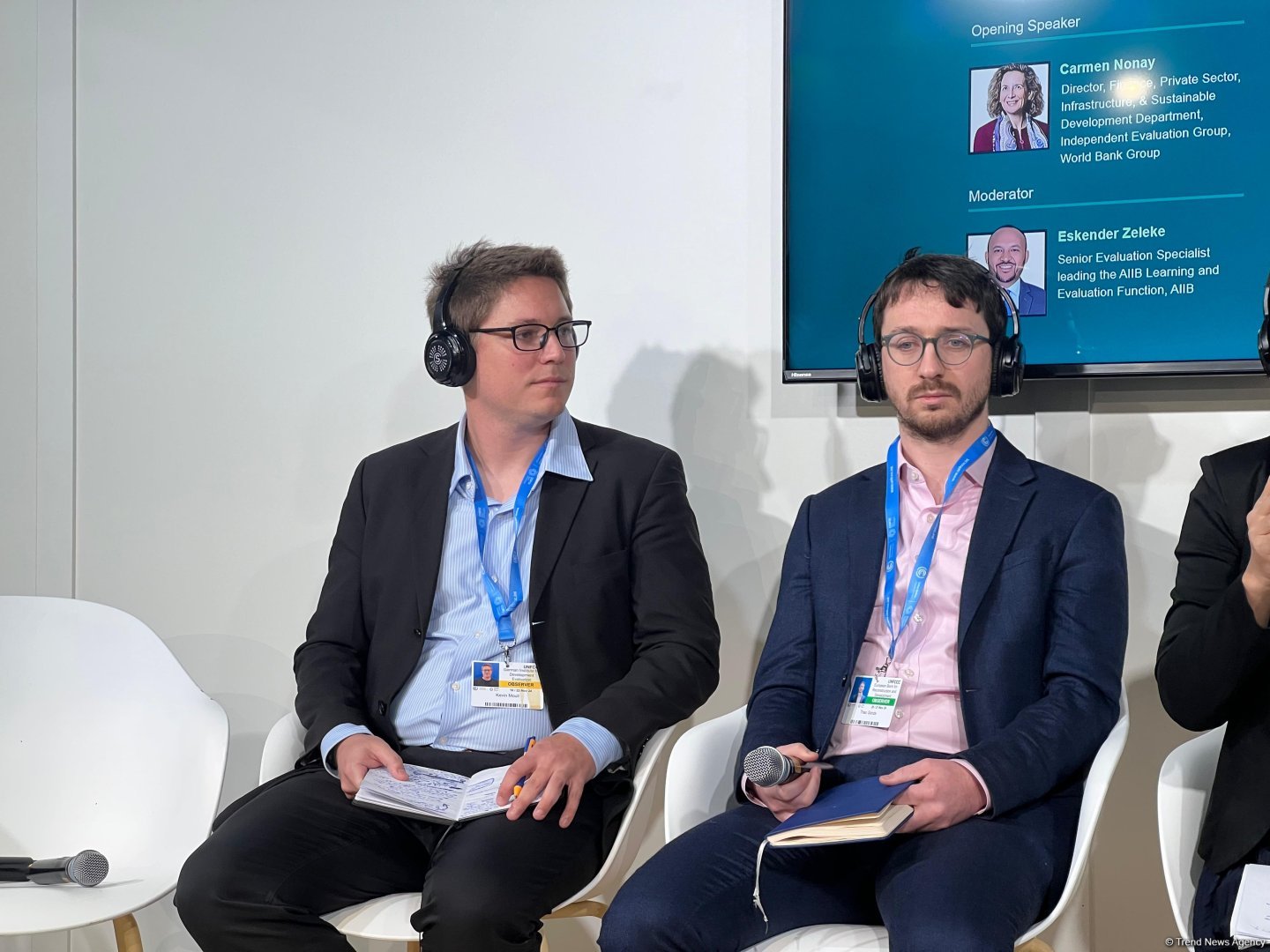BAKU, Azerbaijan, November 21. Reporting and transparency on climate finance needs to be improved significantly, said Kevin Moull, Evaluator at the German Institute for Development Evaluation (DEval), as he addressed a panel discussion at COP29, hosted by the Asian Infrastructure Investment Bank (AIIB), Trend reports.
The session, themed "Independent Evaluation Perspectives on Climate Finance, Policy, and Programs: How Evidence Can Shape Action", delved into the balance between financial support for socio-economic needs and mitigation potential, the transparency of climate finance reporting, and gaps in evidence and evaluation.
Moull emphasized Germany’s dual focus on aiding least-developed countries (LDCs) while addressing mitigation in emerging economies. "Germany allocates substantial funding to nations with high socio-economic need, even at the expense of higher mitigation potential," he said, suggesting that future discussions explore how to enhance mitigation impact while maintaining support for vulnerable nations.
On the issue of transparency, he revealed discrepancies in climate finance reporting. "Germany’s Official Development Assistance (ODA) accounts for approximately 8% of the $100 billion climate finance goal, aligning with its fair share based on historical emissions and economic size," he noted. However, he highlighted that between one-third and one-fourth of reported climate finance does not meet genuine climate finance criteria. "Improving transparency in reporting is essential. If we want to know what works, we need accurate data on where the money is going".
Moull also pointed to significant gaps in evidence for both mitigation and adaptation efforts. While direct effects, such as emissions reductions from technology and infrastructure projects, are measurable, indirect outcomes from policies and institutional reforms remain challenging to track. "We need to bridge the attribution gap, particularly for adaptation, where long-term impacts are difficult to quantify," he said.
He further stressed the need for better data on transformational changes toward low-carbon development, noting that while evidence exists in areas like climate-smart agriculture, research on enabling environments for systemic change is scarce. "With the urgency of climate change increasing, we must scale up and accelerate both adaptation and mitigation efforts," Moull concluded.







